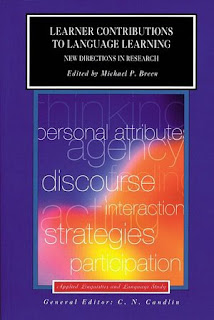As teachers we spend a lot of time reading and correcting other people's work, preparing for our next lessons and grading the ability of our students to perform. However, we some times tend to forget that we belong in that category of professionals that can never stop studying themselves. Teacher education is something that we tend to neglect either because we rarely have time to join online courses or read for ourselves or because teacher training books are considerably overpriced and can't be easily found in countries like mine. Some of us are lucky enough to be able to afford a second master's degree or even a doctorate, but the rest of us have to do with reading and re-educating themselves over and over again. In this attempt the Internet has been my valuable friend and supporter. There are numerous sites that offer free online programmes that offer insight and advice from qualified teacher trainers. What is more nowadays us teachers can find books to buy online in considerably lower prices than in the bookstores.
What follows is my top seven books that have helped me the most and that I turn to from time to time when in doubt.
1. Music and Song By Tim Murphy
As a student I was very certain that listening to music improved my vocabulary and confidence in the target language. I seemed to remember words, structures and phrases much better when they were embedded in one of my favourite songs. In his book, though an old publication, Tim Murphy shows us how to integrate popular music in our lesson plans in order to strengthen certain language skills. I personally love this book.
2. Language Testing in Practice: Designing and Developing Useful Language Tests by Lyle F. Bachman and Adrian S. Palmer
How can we be sure we test our students correctly? This book offers the theoretical base behind ESL testing as well as practical advise.
3. Computer Applications in Second Language Acquisition, Cambridge Applied Linguistics, by Carole Chapelle
 |
| Photo via Amazon |
4. Grammar Games: Cognitive, Affective and Drama Activities for EFL students by Mario Rinvolucri
5. How to Teach Grammar by Scott Thornbury
 |
| Photo via Amazon |
6. Beginning Syntax by Linda Thomas
Know your syntax before you can teach it.
 |
| Photo via Amazon |
7. Learner Contributions to Language Learning, Applied Linguistics and Language Study edited by Michael Breen, general editor Christopher N. Candlin
I am specifically attached to this one since it reminds me so much of my student years. I was lucky enough to have met Michael Breen since he was my Professor during my MsC. He is one insightful linguist and a charismatic teacher.

.jpg)


No comments:
Post a Comment